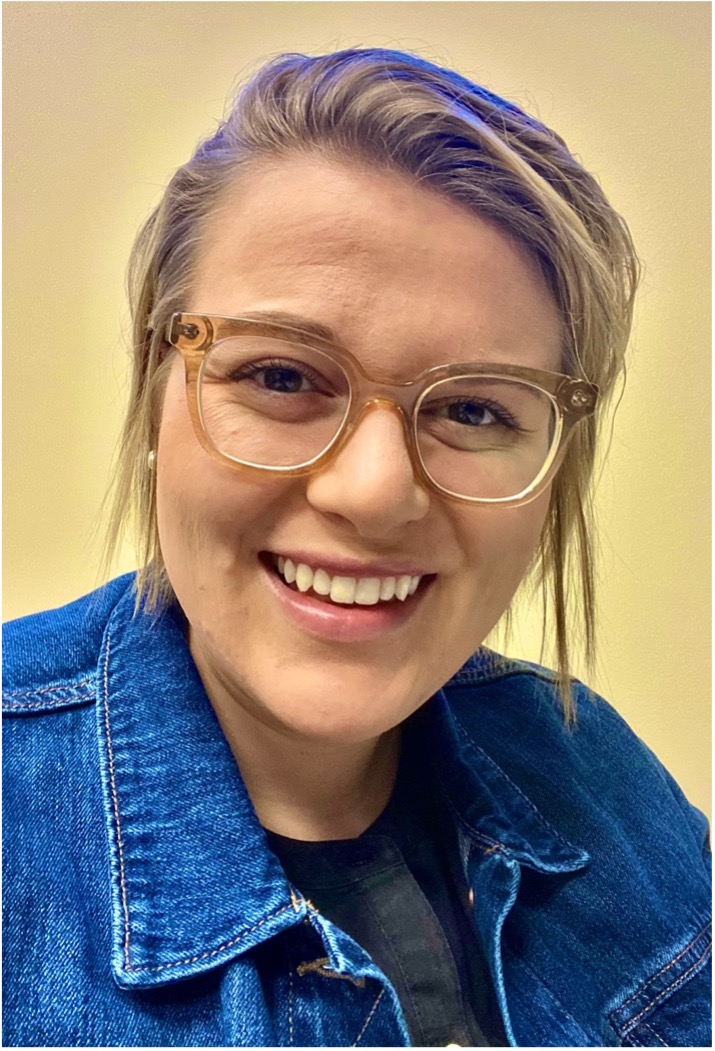About
Mission and Vision
Hobo Archive is a community-based archival project that digitally collects, documents, and preserves cultural resources related to the American hobo, the tramp, and the rail-riding community. It is free, user-friendly, and accessible online for scholars, community groups, educational classrooms, and the general public. The project uses the concept of "participatory archiving" as a collaborative practice between historians, archivists, and community members to build partnerships and establish research relationships with the hoboing community.* Hobo Archive prioritizes:
1) post-custodial models of archival record keeping and management through the use of digital technologies in the pursuit of a more collaborative approach to archival practices
2) crowdsourced data collection using frameworks of community knowledge sharing with culturally knowledgeable people in the rail-riding community
3) models of community engagement that uplift respectful and reciprocal research relationships with the U.S. rail-riding community and the University of Iowa
In particular, the project focuses on enhancing user competence by equipping the community with the technical skills needed to contribute cultural resources online. The project’s goals are to encourage the community’s participation in the archival process by building digital competency directly with community members. The project also prioritizes making accessible the documentation of U.S. rail-riding history for researchers, digital humanities scholars, the rail-riding community, and the wider public.
Hobo Archive also prioritizes educating the public on the common misconceptions and stereotypes of U.S. rail-riding culture. By doing so, Hobo Archive categorizes all collected cultural materials based upon what is deemed culturally authentic (see Collection and Acquisitions Policy) and what is representative of popular culture stereotypes and misrepresentations. These two categories are labeled under the following tags:
1. Culturally authentic materials are labeled with the tags "culture" and "history"
2. Popular culture stereotypes and misrepresentations and labeled with the tags "popular culture", "stereotype", and "misrepresentation"
Hobo Archive collects manuscript materials, images, documents, artifacts, oral histories, and other cultural resources of significance from the transient workforce community to preserve and make available the cultural and authentic historical record of the American hobo. This site features digitized cultural resources donated and contributed by the hoboing community. Every effort is made to portray true color and likeness without any editing. All items are described, many can be downloaded, and all can be cited for research. Hobo Archive's long-term vision is to serve as a gateway for the general public to learn about rail-riding culture in the U.S. via digital reproductions and descriptions.
Project Objectives:
- Better understand the hoboing community’s current use of Hobo Archive
- Document and preserve the history and culture of American hoboing through the collection of authentic cultural resources related to the rail-rider. We prioritize resources from the 1880s-1930s, however, we welcome contemporary resources of historical relevance as well
- Advance the concept of "participatory archiving" as a collaborative practice between historians, archivists, and community members
- Create a post-custodial model for nontraditional collections that includes marginalized communities in the processes of building community-wed archival collections
- Explore how and why the figure of the hobo is represented as a mythic figure in popular culture
Themes of historical inquiry:
- Historical relationships between poverty, homelessness, unemployment, and industrialism in America from the 1870s-1930s with particular emphasis on hoboes and their way of life
- The hobo is a symbol of economic injustice for the working-class
- The importance of the railroad economically and psychologically in the hobo’s life
- The world of hobohemia where hoboes, radicals, writers, and poets in Chicago met and mingled
- The organization of the hoboes by the International Brotherhood Welfare Association and the Wobblies of the Industrial Workers of the World
- The demise of the hobo as a consequence of automation, the automobile, and new groups of migrant workers
Hobo Archive is committed to supporting community-based, scholarly research by documenting and preserving the hobo’s life. The project team is dedicated to making available primary sources that retell the hobo’s real, authentic stories and lived experiences. The archive is "publicly curated", meaning the rail-riding community contributes to the meaningful task of preserving U.S. rail-riding history and culture through inclusive models of archiving and digitally-enabled participation.
We Value Collaboration
Authenticating History
Hobo Archive strives to make the distinction between yesterday’s historically and socially authentic hobo and today's rail-riding hobbyists. While we prioritize the rich history of the authentic hobo and the traveler's positive economic and social-activist impact on American history, we strive to collaborate with today’s rail-riding community of all traveling identities to document and preserve the story of America's transient workforce.
Turning Digital
Hobo Archive is a digital archival project that uses community knowledge sharing as an approach to digital archiving through participatory models of crowdsourced data collection. Crowdsourcing utilizes digital technologies to engage with communities for collaborative knowledge creation. In his book, Crowdsourcing (2013), Daren C. Brabham defines crowdsourcing as an "online, distributed problem-solving and production model that leverages the collective intelligence of online communities to serve specific organizational goals.” By engaging with a targeted community, crowdsourcing supports numerous models of community-engaged public projects, including cultural heritage projects and digital public history projects.
Why are we turning digital? Digital technologies have allowed for greater public access to resources, more online interaction, and more accessible means for community participation. We prioritize working with the public to include expertise in the hoboing community within the collection and documentation processes to capture the most authentic aspects of the history of America's transient workforce.
In order to hold custody over all items contributed, we have moved to a "post-custodial model of archiving." This decision was made in accordance with the community's desire to preserve electronic records, meaning Hobo Archive will not physically acquire and maintain archival records.
Engaging Community
Hobo Archive values community engagement as part of its mission to grant agency to the community itself in the writing of its own histories and sharing of its own stories. We work to build respectful relationships with rail-riders by including the community in the meaningful tasks of historical and cultural preservation.
Credits/Project Partners
This digital project is made possible through partnerships with the Digital Scholarship & Publishing Studio, the School of Library and Information Science, and the Department of American Studies at the University of Iowa. Of course, none of this work would be possible without the continued support of the U.S. rail-riding community. Many thanks to these important project partnerships!
We are constantly updating our records and encourage and welcome members of descendant communities, scholars, and other related publics to contact us with feedback, questions, or concerns.
Project Team Members
Laura Carpenter, Digital Public Historian and Oral Historian

Laura is a PhD Candidate in American Studies at the University of Iowa. Her interest in studying rail-riding culture began with her great-grandma sharing stories about the hoboes she fed on the back steps of her home in Albert Lea, MN during the 1940s. On a cold January morning in 2017, Laura skirted across the icy roads of Iowa to Britt where she met Minneapolis Skinny at the National Hobo Museum. She has researched the history and culture of American hoboing for nearly 7 years now, and her current work focuses on collecting oral histories from rail-riders and preserving the cultural history of rail-riding with the use of digital technologies and community-engaged methodologies. Her dissertation research examines the memory-making traditions and activities of the U.S. rail-riding community. Laura serves as the digital public historian and oral historian for Hobo Archive, which is part of her larger dissertation research that uses inclusive models of community participation in digital public history projects.
Rod Sykora "Minneapolis Skinny", Hobo Historian and Archivist

Minneapolis Skinny's interest in hoboing began when he attended a Britt, Iowa Hobo Convention in 1972. A group of seven men were camped along the Chicago-Northwestern railroad tracks and they invited him to join them. In listening to these men discuss their travels and work experience, he came to know that these were hoboes from America's Depression Era. A hobo named Connecticut Slim easily explained their highly mobile lifestyle by explaining they were merely "infused with the disease Dropetomania, which is the need to travel away from home". This nontraditional, highly mobile lifestyle was so intriguing that Minneapolis Skinny returned the following year. Those same men were joined by two or three additional newcomers, each with their own stories. Each year, new and different rail-riders joined the group, each story more fascinating than the other. As years passed, he experienced an interesting cultural transition - those original hoboes "caught the westbound" and were replaced by a different group of rail riders - veterans from the Vietnam War. Later, these veterans were replaced by successive different groups of "hobby riders."
Today, Minneapolis Skinny is actively involved with the 40-year-old nonprofit Hobo Foundation. He was "dubbed" a hobo historian - by Hobo Spike - and is the historian and archivist for Hobo Archive.
Kate Dennis, Office of Undergraduate Research Fellow, University of Iowa
Hobo Archive's project team is delighted to welcome Kate as its undergraduate research fellow for the 2023-2024 school year. Kate is a current undergraduate at the University of Iowa and an honors student in the Department of History. She is currently working on her honors thesis about Wyoming history through Francis Brammar's photographs. Her interest in hoboing began when she learned about the archive and its mission. Her future goals are to become a librarian or archivist and connect the public to its history through sites like the Hobo Archive. She will work with the project team to build the online collections, create a scholarly reference list for public research, and develop a new digital exhibit for the site.
* "Hoboing community" refers to today’s community of historically lay-persons who gather in Britt, Iowa, and other hobo-related gatherings across the United States. Today’s hoboing community includes those who are considered “rail riding hobbyists” who are not authentic hoboes but are considered an extension of variance with multifaceted transient identities. The first-generation “authentic” hobo of the 1880s-1930s no longer exists. The second generation of rail riders began arriving in Britt during the 1960s as the Depression-era hoboes began to “catch the westbound”. “Minneapolis Skinny” refers to this generation as one of the first generations of “rail riding hobbyists”, a group of mostly Vietnam veterans who resorted to the rails after returning from war. Today’s most recent generation of rail riders consists of younger, placeless individuals. The “young riders” are not authentic hoboes in the classical sense but they are an extension of the authentic hobo culture.

